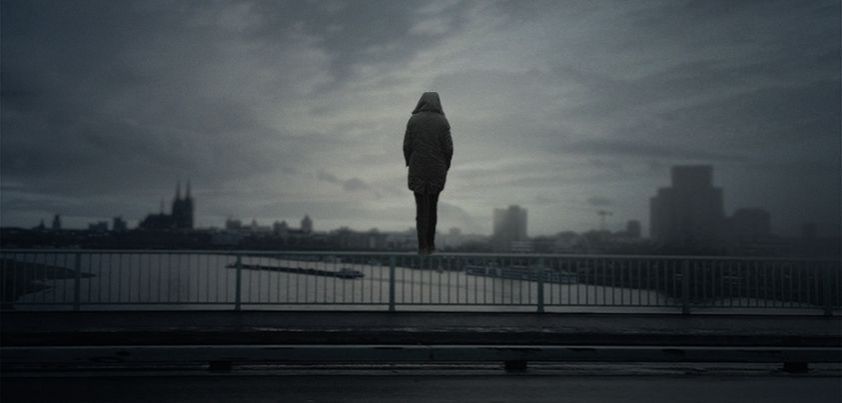 On the surface, this story by Franz Kafka is about a troubled man’s relationship with his frail but dominating father. The father thinks his son is trying to ease him out of their successful business. The son communicates regularly with a ‘friend’ in Russia, who may be an imaginary alter ego. The father says the friend would be more a son after my own heart, and judges his son guilty of selfishness and betrayal. He sentences him to death by drowning, which the son promptly carries out. Themes: loneliness, insecurity, bachelorhood vs. marriage, patriarchy, father-son relationships, crime, guilt, punishment.
On the surface, this story by Franz Kafka is about a troubled man’s relationship with his frail but dominating father. The father thinks his son is trying to ease him out of their successful business. The son communicates regularly with a ‘friend’ in Russia, who may be an imaginary alter ego. The father says the friend would be more a son after my own heart, and judges his son guilty of selfishness and betrayal. He sentences him to death by drowning, which the son promptly carries out. Themes: loneliness, insecurity, bachelorhood vs. marriage, patriarchy, father-son relationships, crime, guilt, punishment.
Original Text / PDF / Audio (4,519 words)
General Comments
According to Kafka scholar Prof. Stanley Corngold: “The Judgment” is the only prose work of ten pages in world literature which, though not belonging to a sacred or classical canon, has inspired in the West alone nearly two hundred visible commentaries. The story has been studied to death from all conceivable perspectives (literary, metaphysical, philosophical, psychological and spiritual), and there is still no generally agreed interpretation!
What we do know is that the story is at least in part autobiographical: Kafka had a troubled relationship with his father and was uncomfortable in his relationships with women. In terms of Kafka’s short literary career, The Judgment was a turning point. It encouraged him to progress to his even more bizarre stories The Metamorphosis, In the Penal Colony and A Hunger Artist. From a global literary perspective, Kafka’s work heralded a new genre (magical realism) involving the use of dream-like or surreal story-lines. This has influenced the work of a number of later greats such as Luis Borges, Albert Camus, Gabriel Garcia Marquez and Jean-Paul Sartre.
Video Versions
This 2016 film adaption directed by Connor Doyle provides an excellent overview of the main story elements. The first part of the video (up to the point the son goes into his father’s room) uses subtitles to communicate what is happening, but after that there is spoken dialog. Interestingly, the film appears to take the existence of George’s Russian friend as fact rather than leaving it open to interpretation. Watch and enjoy!
A fascinating aspect of this much shorter 2015 film version is director Forrest Rice’s portrayal of the father as a manipulative, intimidating bully who seems to be losing his mind. This may explain a lot. Could insanity run in the whole family? Watch and enjoy!